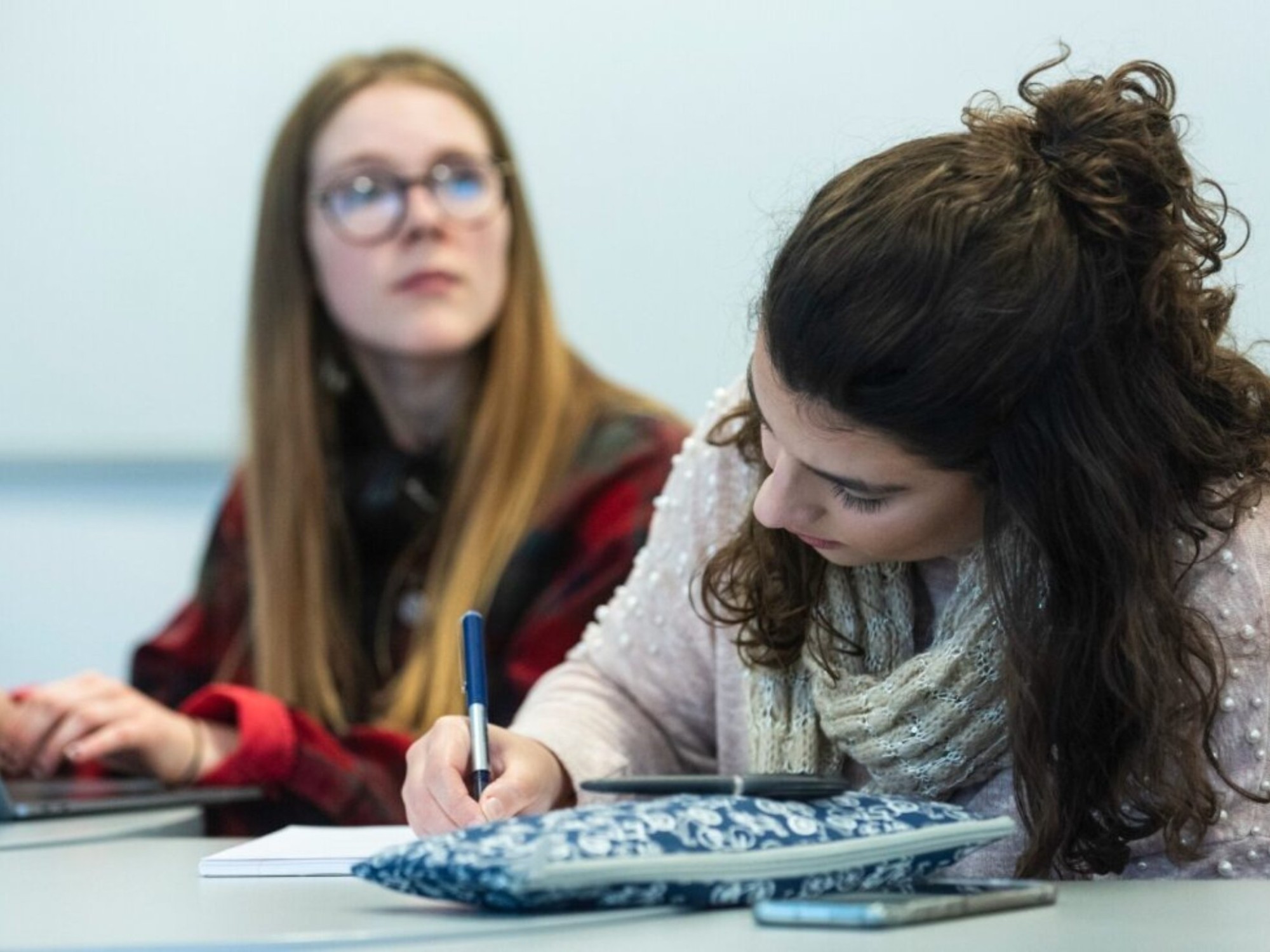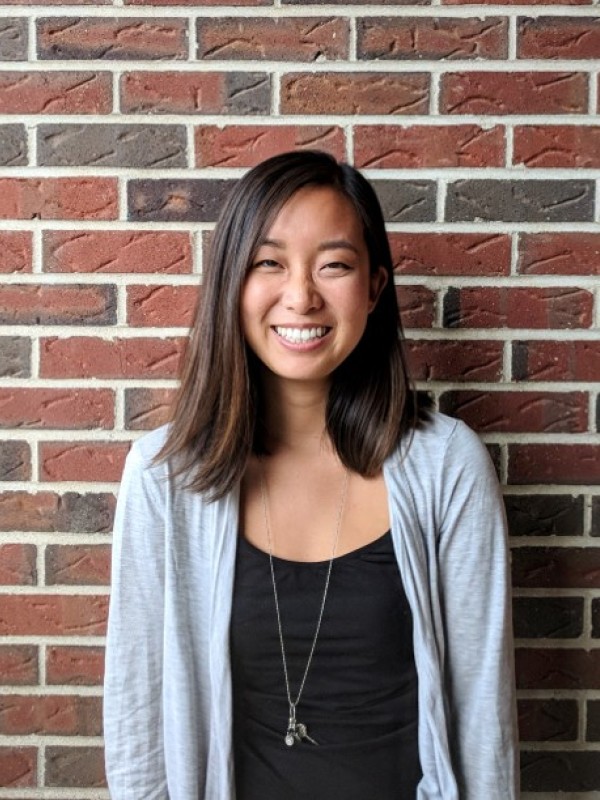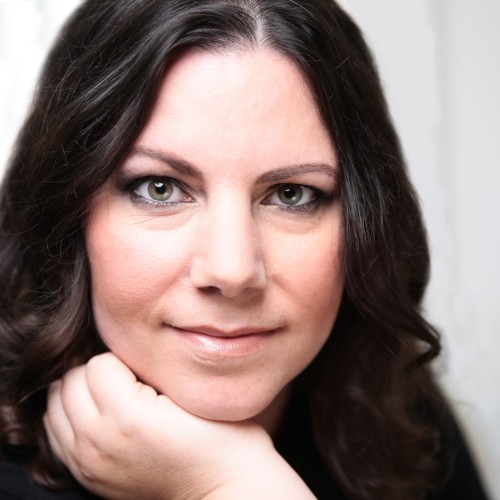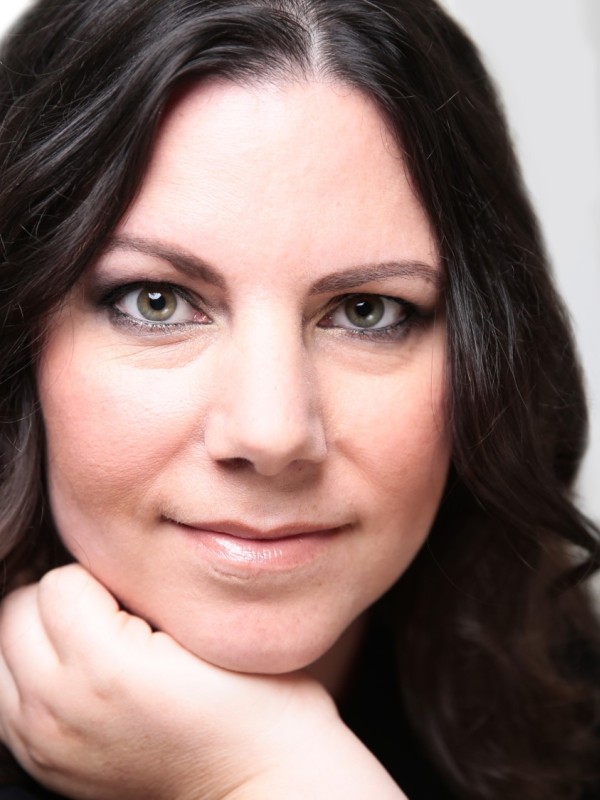
- Creative Writing
PhD Creative Writing
We are a vibrant and imaginative community with a diverse mix of subject specialities and much opportunity for intellectual exchange, across both literary-critical and creative work.
Why choose this
programme?
- We belong to the interdisciplinary School of Literature and Languages, which has research-active staff in English literature, film studies, translation studies, theoretical and applied linguistics, and literary and cultural studies as well as creative writing.
- Our research in modern and contemporary writing explores themes including the work of living writers, the tradition and future of innovative writing, environment and climate change, the nature of publishing as an innovative and radical political enterprise, and literature and the body.
- We are part of TECHNE, an Arts and Humanities Research Council (AHRC)-funded doctoral training partnership, which provides access to comprehensive academic and professional training programmes, as well as the possibility of funding for your studies.
- The Research Excellence Framework (REF) 2021 ranked the School of Literature and Languages 10th for research impact, with 75% of our case studies rated as having outstanding impacts, in terms of reach and significance (4*). Our submission to REF included contributions from the Guildford School of Acting (GSA).
Statistics
Fantastic graduate prospects
95% of Surrey's postgraduates go on to employment or further study
10th for research impact
The Research Excellence Framework (REF) 2021 ranked the School of Literature and Languages 10th for research impact
What you will study
Our Creative Writing PhD will train you in critical and analytical skills, research methods, and knowledge that will equip you for your future career. It normally takes between three to four years to complete our full-time PhD.
You’ll be assigned two supervisors who will meet with you regularly to read and discuss your work and make sure you’re on track. For us, writing is essential for understanding and developing new perspectives, so you’ll be submitting written work right from the start of your course.
In your first year, you’ll refine your research proposal and plan the structure of your work with the support of your supervisors. As you go into your second and third year, you’ll work more independently, and your supervisors will guide you on how to present at conferences and get your work published.
As a doctoral student in the School of Literatures and Languages, you’ll receive a structured training programme covering the practical aspects of being a researcher, including grant-writing, how to publish in journals, and how to applyfor academic jobs.
Assessment
After 12-15 months, you’ll submit a substantial piece of work for a confirmation examination. The confirmation examination will be conducted by two internal members of staff not on your supervisory team and will give you the opportunity to gain additional guidance on your research-to-date.
Your final assessment will be based on the presentation of your research in a written thesis, which will be discussed in a viva examination with at least two examiners. You have the option of preparing your thesis as a monograph (one large volume in chapter form) or in publication format (including chapters written for publication), subject to the approval of your supervisors.
Location
This course is based at Stag Hill campus. Stag Hill is the University's main campus and where the majority of our courses are taught.
Research themes
- Experimental poetry
- Historical prose fiction
- Literary prose fiction
- Contemporary commercial fiction
- Genre prose fiction.
Discover more about literature and languages research.
See a full list of all our literature and languages academic staff.
Research support
We’ll also support and develop your writing and research skills, through our additional subject-specific training, and by meeting visiting scholars including our writers and poets in residence.
The University offers excellent training opportunities and a range of research seminars and events. These provide a valuable opportunity to meet visiting scholars whose work connects with our own research strengths across literature, theory, and creative writing. Our Creative Writing PhD students often take part in regular readings and events such as the New Writers Festival and Surrey Poetry Festival.
The professional development of postgraduate researchers is supported by the Doctoral College, which provides training in essential skills through its Researcher Development Programme of workshops, mentoring and coaching. A dedicated postgraduate careers and employability team will help you prepare for a successful career after the completion of your PhD.
Facilities
You’ll be allocated shared office space and have full access to our library and online resources. Our close proximity to London also means that the British Library and many other important archives are within easy reach.


Melanie Hyo-In Han
Student - Creative Writing PhD
"My supervisors have been instrumental in helping me to achieve my goals during my PhD by providing guidance and feedback on my research, enabling me to refine my ideas and hone my skills."


Melissa Addey
Graduate - Creative Writing PhD
"I’ve just published my 10th novel (15th book) which feels like a bit of a milestone. I also teach writing workshops every month at The British Library, mostly around authors being entrepreneurial about their writing".
UK qualifications
Applicants are expected to hold a first or upper second-class (2:1) UK degree and an MA in a relevant topic.
In exceptional cases, students with a good first degree will be considered for creative writing where there is a substantial or promising creative portfolio.
English language requirements
IELTS Academic: 7.0 or above with a minimum of 6.5 in each component (or equivalent).
These are the English language qualifications and levels that we can accept.
If you do not currently meet the level required for your programme, we offer intensive pre-sessional English language courses, designed to take you to the level of English ability and skill required for your studies here.
Selection process
Selection is based on applicants:
- Meeting the expected entry requirements
- Being shortlisted through the application screening process
- Completing a successful interview
- Providing suitable references.
Fees per year
Explore UKCISA's website for more information if you are unsure whether you are a UK or overseas student. View the list of fees for all postgraduate research courses.
* Please note: any start date other than September will attract a pro-rata fee for that year of entry (75 per cent for January, 50 per cent for April and 25 per cent for July).
October 2025 - Full-time
- UK
- £5,006
- Overseas
- £21,000
October 2025 - Part-time
- UK
- £2,503
- Overseas
- £10,500
July 2025 - Full-time
- UK
- £1,197
- Overseas
- £5,050
July 2025 - Part-time
- UK
- £598
- Overseas
- £2,525
January 2026 - Full-time
- UK
- £3,755
- Overseas
- £15,750
January 2026 - Part-time
- UK
- £1,877
- Overseas
- £7,875
April 2026 - Part-time
- UK
- £1,252
- Overseas
- £5,250
April 2026 - Full-time
- UK
- £2,503
- Overseas
- £10,500
- Annual fees will increase by 4% for each year of study, rounded up to the nearest £100 (subject to legal requirements).
Additional costs
There are additional costs that you can expect to incur when studying at Surrey.
Funding
A Postgraduate Doctoral Loan can help with course fees and living costs while you study a postgraduate doctoral course.
Application process
Applicants are advised to contact potential supervisors before they submit an application via the website. Please refer to section two of our application guidance.
After registration
Students are initially registered for a PhD with probationary status and, subject to satisfactory progress, subsequently confirmed as having PhD status.
About the University of Surrey
Need more information?
Contact our Admissions team or talk to a current University of Surrey student online.
Code of practice for research degrees
Surrey’s postgraduate research code of practice sets out the University's policy and procedural framework relating to research degrees. The code defines a set of standard procedures and specific responsibilities covering the academic supervision, administration and assessment of research degrees for all faculties within the University.
Download the code of practice for research degrees (PDF).
Terms and conditions
When you accept an offer to study at the University of Surrey, you are agreeing to follow our policies and procedures, student regulations, and terms and conditions.
We provide these terms and conditions in two stages:
- First when we make an offer.
- Second when students accept their offer and register to study with us (registration terms and conditions will vary depending on your course and academic year).
View our generic registration terms and conditions (PDF) for the 2024/25 academic year, as a guide on what to expect.
Disclaimer
This online prospectus has been published in advance of the academic year to which it applies.
Whilst we have done everything possible to ensure this information is accurate, some changes may happen between publishing and the start of the course.
It is important to check this website for any updates before you apply for a course with us. Read our full disclaimer.

